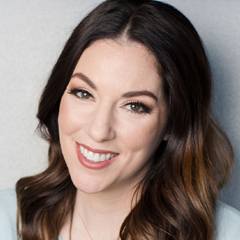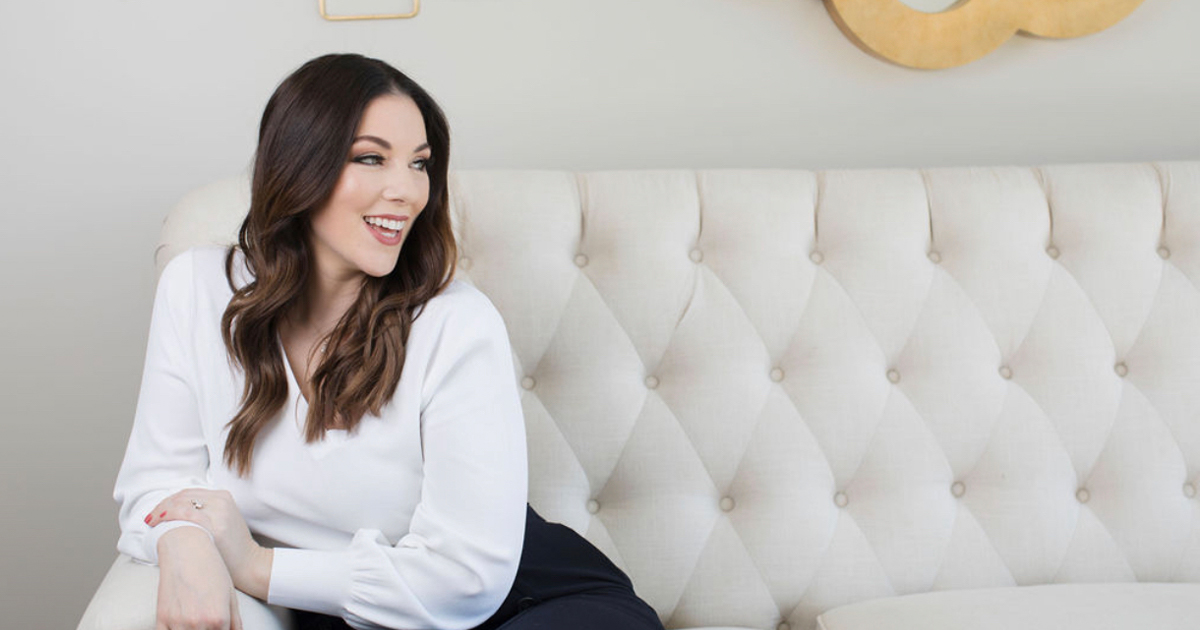La Salle University
Social work grad establishes a dual career
Julia Hartman, ’10, is helping others overcome barriers as both a licensed social worker and life coach.
Julia Hartman, ’10, LMSW, knows the value of encouragement to someone who is facing obstacles.
While completing her social work degree and trying to find her footing at La Salle University, the encouragement she received from political science professor Mary Ellen Balchunis, Ph.D., inspired Hartman to fulfill her academic potential.
“I remember thinking, ‘I’m not doing great in this class,’ but (Balchunis) wasn’t focused on that,” said Hartman. “She’d say, ‘I see your skills. You’re valuable. Just keep working hard.’ That meant so much to me at such a young age.”
Helping others overcome obstacles in order to achieve their goals—and recover from traumatic situations—is one of Hartman’s objectives as a life coach and licensed social worker. She operates Julia Hartman Coaching concurrently with her full-time position as a licensed social worker in the emergency room at Good Samaritan Hospital in Los Angeles.
Though the core responsibilities and qualifications of her two jobs may differ, the common denominator is her ability to help individuals recognize that barriers come in many forms.
 “Social workers are trained to help people address personal and systemic barriers to optimal living,” said Hartman. “They are employed to effect positive change with individuals, families, groups, and entire communities. Coaching involves being able to help people identify barriers that are holding them back, then develop the structure to be action-oriented toward achieving those goals.”
“Social workers are trained to help people address personal and systemic barriers to optimal living,” said Hartman. “They are employed to effect positive change with individuals, families, groups, and entire communities. Coaching involves being able to help people identify barriers that are holding them back, then develop the structure to be action-oriented toward achieving those goals.”
Here’s more on Hartman’s dual career, which includes her 2020 selection as one of the top 20 life coaches in the Los Angeles area by LA Entrepreneurs Magazine:
Your career began in social work, and you eventually also began working as a life coach. How did that transpire?
Hartman: “I was working with an LCSW who would refer me clients. I talked to her about the work I was doing. She said, ‘It sounds like you’re really doing coaching.’ I started looking into coaching. When I learned about it, I realized it was exactly what I wanted to do. I started to work toward that goal: to be a life coach. I realized I needed to branch out on my own. Right now, coaching is not regulated, unlike social work. You can work as a coach without certification or licensure. That’s how I was able to move into my own practice.”
To the layperson, it might seem like a blurry line between therapist and life coach. What are specific differences?
Hartman: “It does seem blurry but there is a distinction. Not all coaches have a clinical background. Because I have a social work background, I incorporate more therapeutic techniques in my coaching. Both therapists and life coaches are focused on structured, action-oriented goal setting but coaches don’t go deeply into mental health. Coaching is designed to help you work toward goals that you’ve set out for yourself.”
What are examples of these goals and the methods you employ to help clients reach them?
Hartman: “Goals could be anything from ‘I want to lose 20 pounds,’ to ‘I want to find a relationship,’ to ‘I want to start a business,’ to ‘I want to have less anxiety.’ I use mindfulness techniques. Meditation is really key. I do a lot of accountability check-ins. I stay on top of my clients’ progress. We talk about breaking down goals to small, bite-size pieces. Then we check-in: ‘OK, it’s been two weeks, what have you completed?’”
Have the needs for your services increased in the wake of the COVID-19 pandemic?
Hartman: “Yes. There are people who benefit from coaching versus therapy. They may not be dealing with depression and anxiety but now the COVID-19 pandemic has shifted their view of their workplace, for example. Like, ‘This is a wakeup call. This is not the job for me.’ The same is true with relationships. I have clients who have been married for years and this pandemic has put them in a position where they want to pivot and consider what it is that they really want in their life.”
—Patrick Berkery
